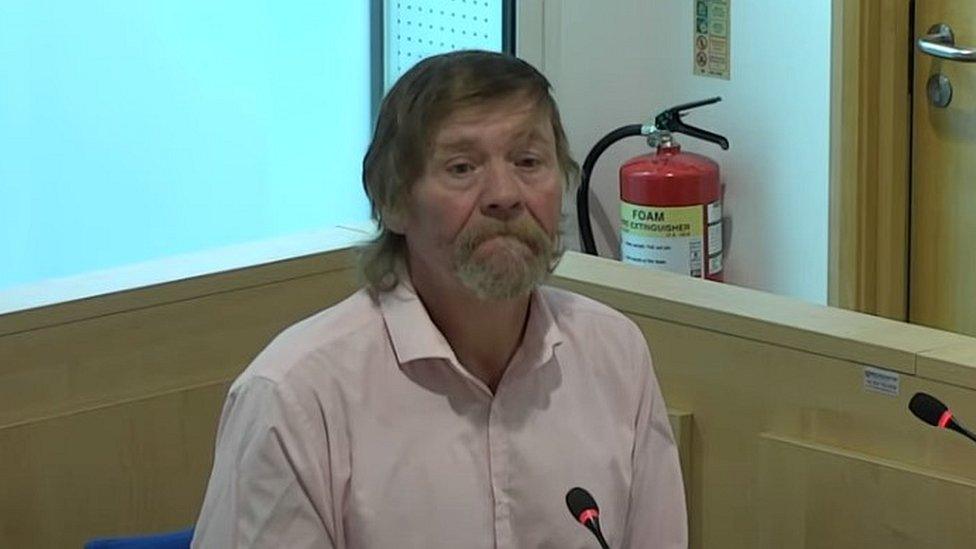Manchester Arena Inquiry: Police chief admits co-ordinated response failure
- Published
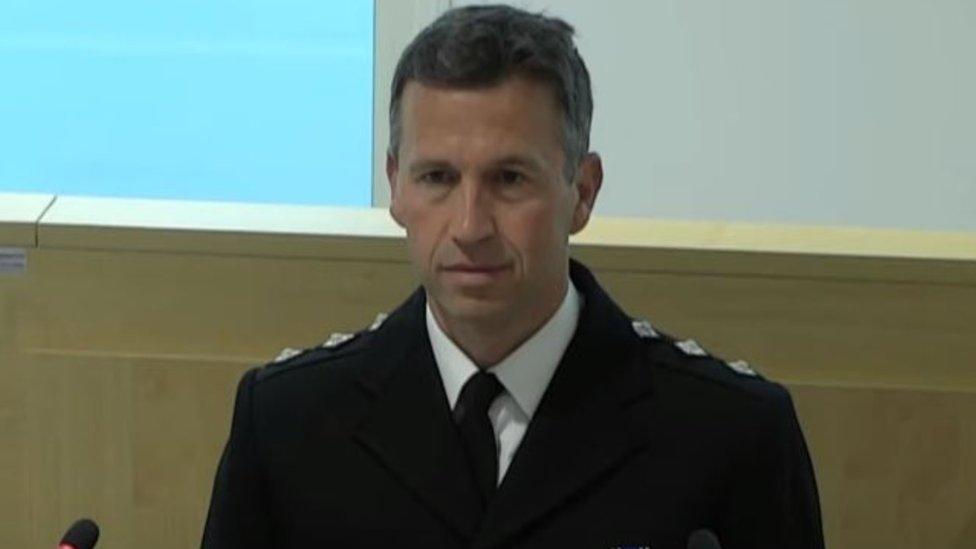
Ch Insp Tony Lodge was overseeing British Transport Police's response on the night of the attack
A senior officer has accepted he failed to make sure the emergency services were working together in the aftermath of the Manchester Arena attack.
Ch Insp Tony Lodge was based in British Transport Police's (BTP) control room in London on the night of the bombing.
He told an inquiry into the attack that he had not noticed the ambulance and fire services had nominated different rendezvous points to his own force.
One of his jobs was to "spot any gaps" in BTP's response, the inquiry heard.
Twenty-two people were killed and hundreds more injured when Salman Abedi detonated a bomb at the end of an Ariana Grande concert on 22 May 2017.
On the evening of the attack, Ch Insp Lodge was working as a senior duty officer (SDO) for the force.
The inquiry heard he had no training or experience in dealing with a major incident for the role of the SDO.
Ch Insp Lodge agreed that he did not take any action to ensure the different emergency services were meeting together at the scene of the explosion.
The inquiry also heard that, during a major incident, emergency commanders from the police, fire and ambulance services were supposed to locate in one place to co-ordinate the response.
"I was speaking to over 15 different internal stakeholders," Ch Insp Lodge said.
"The log is moving very fast and also to be truthful the JESIP [multi-agency working] principles at that time weren't sufficiently engrained in my muscle memory, my reflex memory."

Twenty-two people died in the attack on 22 May 2017
Almost an hour after the bomb exploded, Ch Insp Lodge was still trying to establish whether BTP had primary control over the incident.
The inquiry heard how the first time he tried to speak to Greater Manchester Police (GMP) was 50 minutes after the explosion when he called 999 and asked to be put through to the force's control room.
During that call he asked whether the bomb scene was in GMP or BTP's jurisdiction.
He accepted that this would have been an opportunity to speak to GMP about multi-agency co-operation and whether officers and emergency responders on the ground were working together.
'Sheer tragedy'
The inquiry also heard from another BTP commander, Ch Supt Allan Gregory, who was based in a force control room in Birmingham on the night of the attack.
He told the inquiry he "regretted" not speaking to fellow silver commanders at Greater Manchester Fire and Rescue Service and GMP.
"I should have been more diligent around reaching out... and having conversations about what they understood," he said.
The inquiry heard Ch Supt Gregory trained as a silver commander before the attack but he said no training could prepare him for what happened that evening.
"The principles were clear… but in terms of the sheer scale of events, the sheer amount of information coming at you in different order and the sheer tragedy, no I wouldn't describe that as a full level preparation for what happened on 22 May," he said.
The inquiry continues.

Why not follow BBC North West on Facebook, external, Twitter, external and Instagram, external? You can also send story ideas to northwest.newsonline@bbc.co.uk
Related topics
- Published22 April 2021
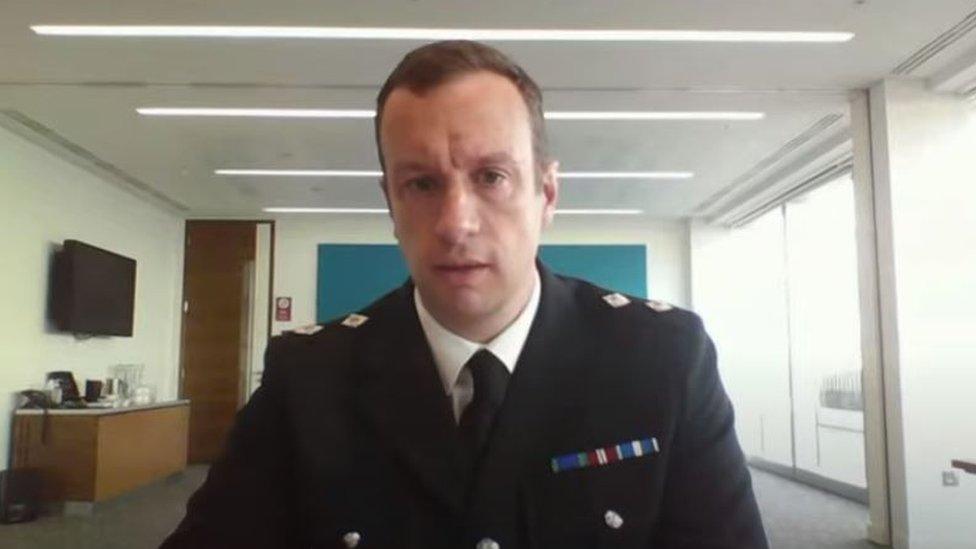
- Published21 April 2021
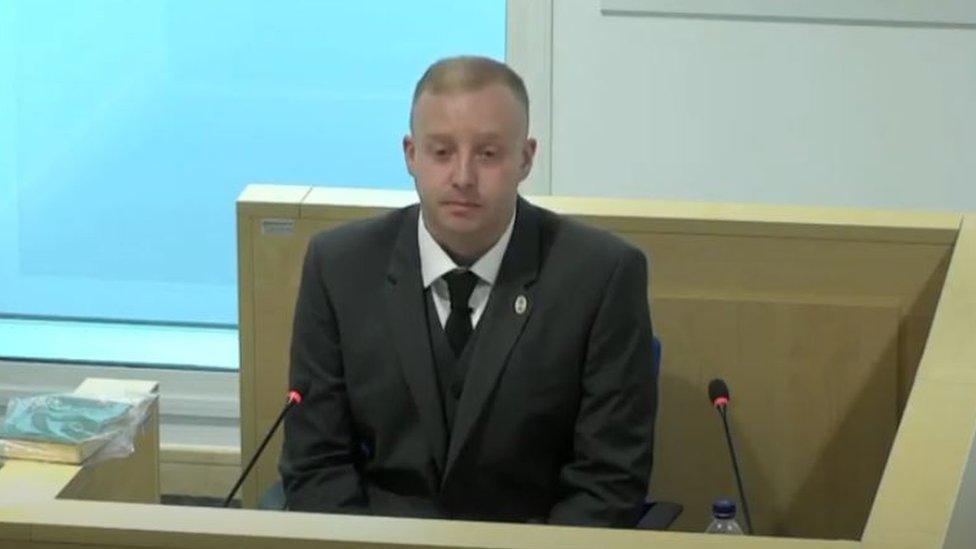
- Published20 April 2021
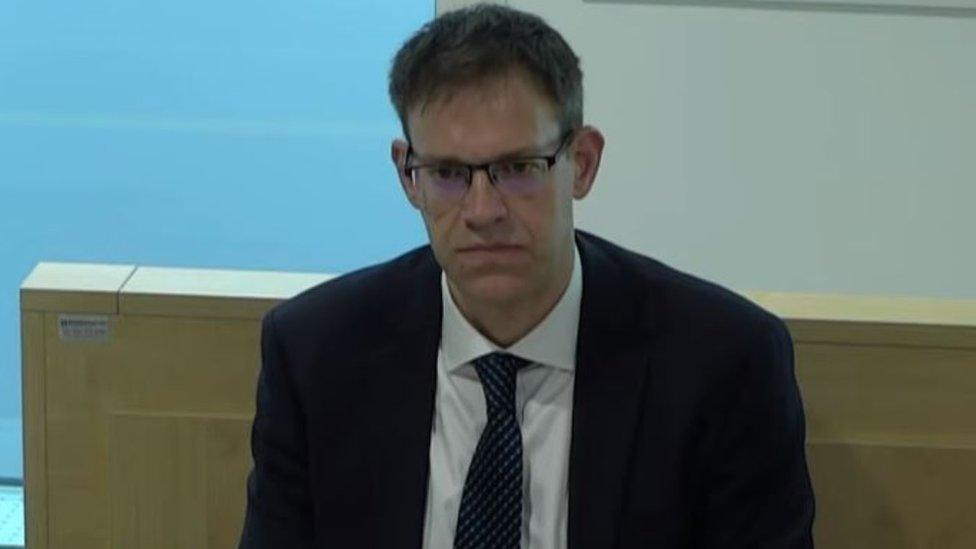
- Published19 April 2021
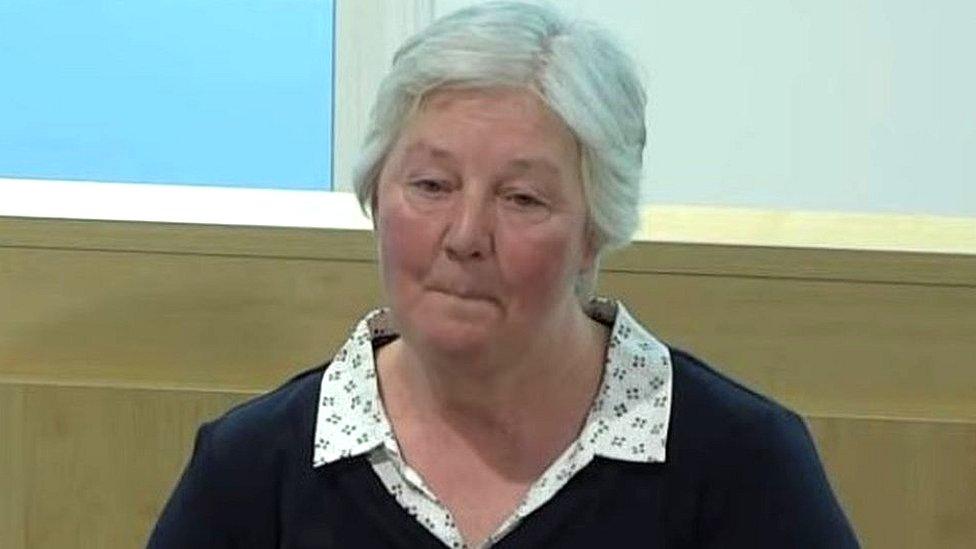
- Published15 April 2021
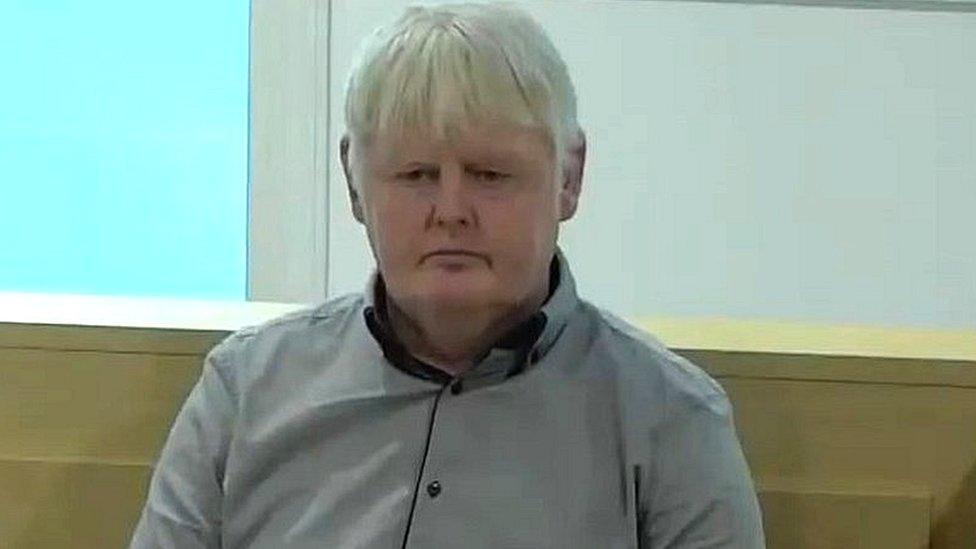
- Published14 April 2021
